Solar lights make use of lithium-ion batteries which are found in a wide range of products from smartphones to laptops. Lithium-ion batteries contain flammable electrolytes that can cause fires if they’re damaged or overheated.
While this risk exists for all items using such batteries, the risk must be mitigated when dealing with solar lighting due to their outdoor location and exposure to extreme weather conditions like high heat and humidity.
To reduce the chances of a fire occurring, ensure you buy quality lights made with durable materials and check the wiring before installation.
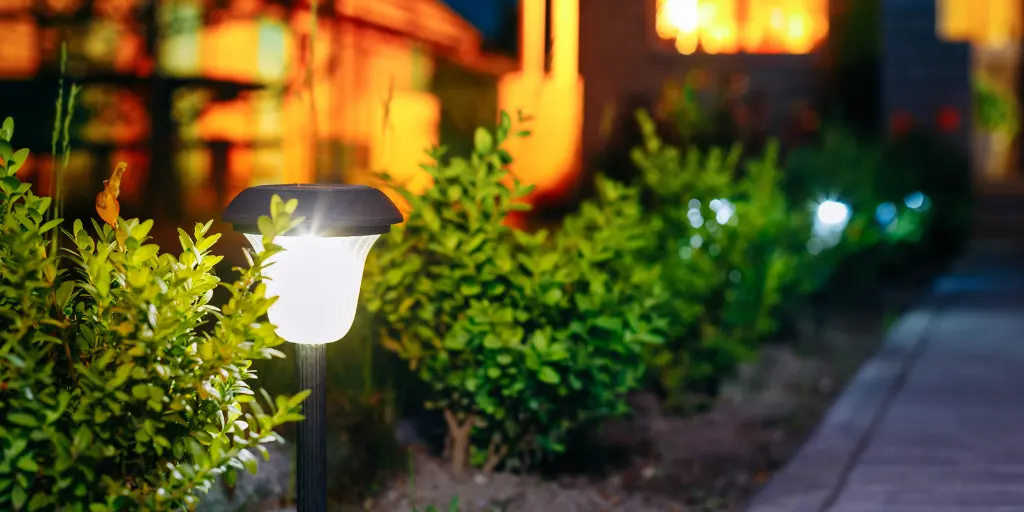
It’s important to take safety measures when installing solar lights as even small sparks can lead to disaster if proper care isn’t taken.
Keeping up regular maintenance on your lights goes a long way towards preventing fires caused by faulty equipment or poor wiring – plus it keeps your home looking great!
Potential Causes of a Solar Light Fire
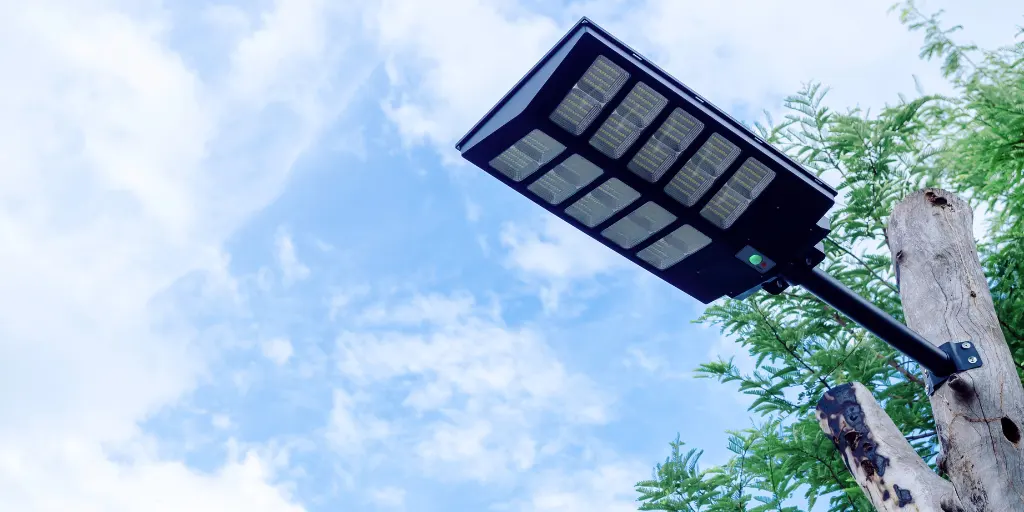
The issue with the battery or charger
One cause could be an issue with the battery or charger used in the light.
If there is any defect or damage to either component, this can create an electrical short and potentially lead to overheating and even combustion.
Last February 8, 2023, there was a fire incident due to a solar inverter in Texas. Even though this is not directly related to solar lights, the same cause can happen with solar lights as well.
Waterproof Problems
Another possibility is due to water infiltration into the lighting system itself.
This can result in corrosion that leads to sparking or arcing between components within the circuit board.
Incomplete installation process
In addition, improper installation techniques could also increase the likelihood of a fire occurring from a solar light system.
Given all these factors, it’s important for homeowners who use solar lights to ensure that their systems are regularly inspected by a qualified electrician to help prevent any issues related to overloading circuits or faulty wiring connections.
Taking such steps helps reduce the risk of fires caused by malfunctioning solar lights while ensuring reliable operation at all times.
How To Reduce the Risk of Fire from Solar Lights?
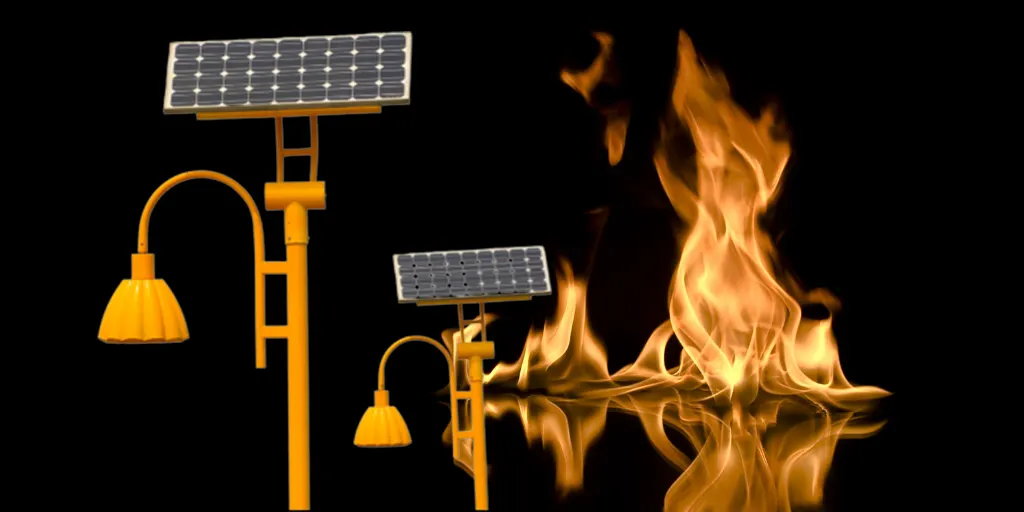
When it comes to solar lights, there is always a risk of fire.
However, this doesn’t mean that you should avoid using them altogether – with the right precautions in place, you can reduce your chances of experiencing a fire from solar light.
So how do you accomplish this?
First and foremost, make sure to buy solar lights from reputable manufacturers who are known for producing quality products.
This will help ensure that the components used to create the lights are up to standard and not prone to overheating or malfunctioning.
Additionally, regularly inspect the wiring on the lights and replace any frayed or broken wires as soon as possible. In some cases, installing an additional fuse may also be necessary.
Finally, use common sense when setting up your lighting system:
- don’t overload circuits.
- keep combustible materials away from hot surfaces.
- pick waterproof LEDs rather than incandescent bulbs.
- never leave your lights unattended while they are switched on overnight.
Taking these few simple steps will significantly minimize the risk of fire associated with solar lights.
Safety Precautions to Take with Solar Lights
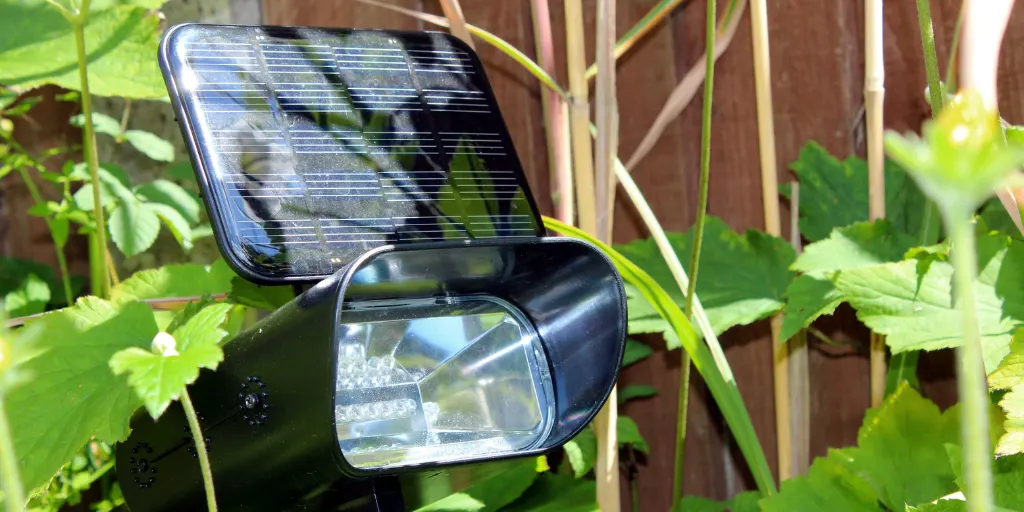
When using solar lights, safety should be the top priority.
Taking certain precautions can help make sure that everyone stays safe when utilizing this type of lighting.
Here are some steps to take to ensure a secure experience with solar lights.
- check if any cords or wires have been damaged in any way. This includes looking for fraying or exposed parts on the wiring, as those could potentially lead to a fire hazard if not handled properly. If there is any sign of damage, it’s best to replace them immediately before use. It’s also smart to regularly clean off dust and debris from both the outdoor light fixtures and their respective solar panels as they collect over time.
- one should always pay attention to where they’re placing their solar lighting units. Making sure they’re out of reach of children, pets, and other objects that may cause harm or obstruct their functioning in any way. It’s also recommended that you place your lights away from combustible materials such as dry leaves and grasses since these can easily catch fire under direct sunlight exposure.
- Regular maintenance checks should be done on all aspects of your solar lighting system. Even if everything initially appears fine – just so you know that no changes have occurred which could result in an unsafe situation down the line. Doing this will guarantee peace-of-mind knowing that your setup is up-to-date and ready for anything!
Warning Signs of a Faulty Solar Light
it’s important to be aware of the warning signs of a faulty light.
The most common issue with any type of lighting is overheating, which can lead to fire or electrical shock if not taken seriously.
Therefore, it’s crucial that homeowners recognize when their solar lights may be malfunctioning and take steps to address the situation quickly.
One red flag that something might be wrong with your solar lights is flickering or dimming in brightness despite being fully charged during daylight hours.
This could mean there’s an internal problem within the unit itself; it could also indicate that the photovoltaic cells aren’t receiving enough power from the sun due to shadows on them or other obstructions.
In either case, you should unplug and inspect the unit for damage before using it again.
If your solar light starts making strange noises like buzzing or crackling, this could signal an imminent risk of fire as well as electric shock danger.
You should immediately shut off the power to the device and contact a qualified technician for further evaluation and inspection.
Remember, taking proper safety precautions with these devices will help ensure they work properly for many years to come.
How To Respond If a Solar Light Catches Fire?
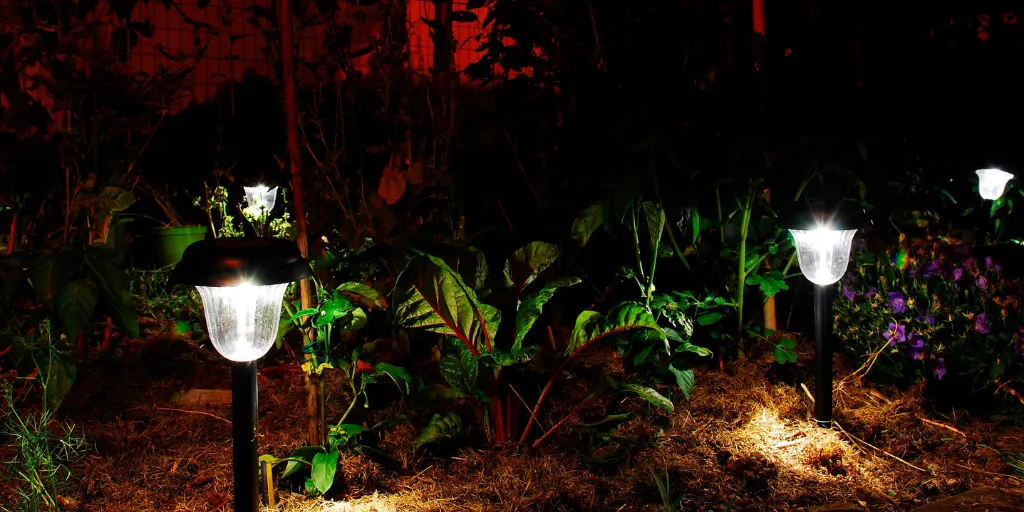
When it comes to solar lights catching fire, the most important thing is to know what steps to take.
It’s essential that you are prepared in case a situation arises and understands how best to respond if your solar light does catch fire.
- Firstly, ensure that everyone around you is safe. If possible, move away from any potential danger or open flames before attempting to deal with the issue yourself.
- Alternatively, contact your local fire department for assistance.
- Next, try turning off the power source of the affected area as quickly as possible—but only do this if it can be done safely.
- Additionally, make sure you have appropriate safety equipment such as gloves and goggles at hand when dealing with hot surfaces or melted parts of the device.
- Finally, never attempt to put out an electrical fire using water – instead use a dry chemical fire extinguisher made specifically for Class C type fires involving electricity or flammable liquids.
By following these instructions and taking necessary precautions, you should be able to reduce the risk associated with dealing with a faulty solar light safely and effectively.
Insurance Policy Considerations for Solar Lights
When considering solar lights, it’s important to consider what your insurance policy covers.
In case of a fire or other damage caused by the lights, you’ll want to make sure that you’re adequately covered.
It’s always wise to ask about coverage for any type of lighting system prior to purchase.
There may be options available through your existing homeowner’s or renter’s insurance policies, but if not, you can discuss standalone plans with an insurer.
With these types of policies in place, you should feel confident that regardless of whether a light catches on fire or simply malfunctions and needs replacement, you’re protected financially.

Eng. Matthew Joseph Nandirio is the Founder of walkingsolar.
After graduating from the University of Houston in 2002, matt started working as a Solar Electrical Engineer for several multi-national solar energy companies.
He has a wide range of experiences including solar system requirement analysis, planning, maintaining, debugging and even solar device development through research.
He now shares his 20 years of expertise through his articles on the walkingsolar website.
Further, he is also the author of two books on Solar Technology, “Solar Power for Villages” and “DIY Solar System for Dummies”.

